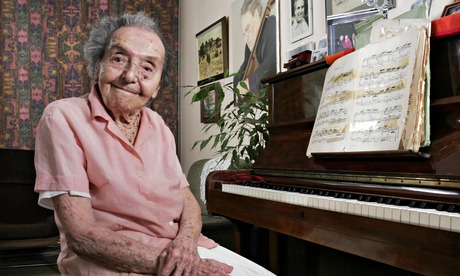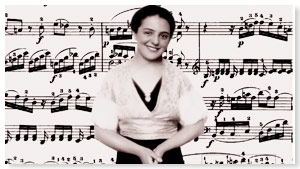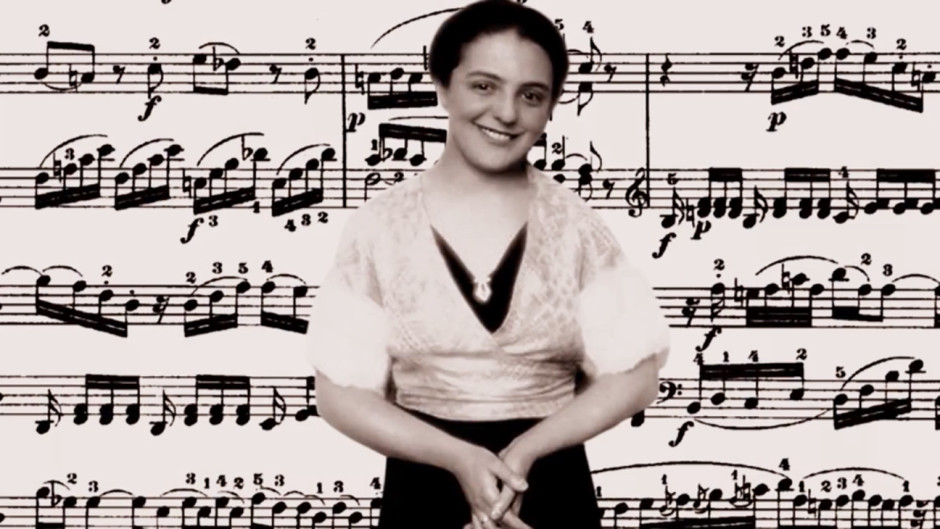Concert pianist and Holocaust survivor Alice Herz-Sommer was 110 when she died in London last February. She passed away only two days before the movie in which she appeared, The Lady in Number 6: Music Saved My Life, won the Academy Award for best documentary in the short subject category.
It’s a pity she couldn’t savour that triumphant moment, but thanks to director Malcolm Clarke, Alice has been immortalized in celluloid.
Now available on the Internet streaming provider Netflix, The Lady in Number 6 is a portrait of an indomitable woman who was sustained by music, particularly the Etudes of Frederic Chopin.
“My world is music,” says Alice, who was the world’s oldest Holocaust survivor until she died. “I’m not interested in anything else.”

This 38-minute film unfolds in the north London flat where Alice, frail but lively, lived alone until her death. Alice talks about her life and plays the piano, and two friends, also Holocaust survivors, reminisce about her. File footage of the Nazi occupation of Czechoslovakia, Alice’s birthplace, and of Theresienstadt, the Nazi camp to which she was deported, gives a viewer historical perspective.
Alice was born in Prague, one of five children sired by a prosperous couple who moved in artistic circles. Among their friends were the novelist Franz Kafka and the composer Gustav Mahler, who went on walks with Alice and her mother.
Alice embarked on a career as a concert pianist and became something of a celebrity in pre-war Europe. In 1937, she married Leopold Sommer, a businessman with whom she had a boy, Raphael.
“With music, I was always happy,” she says. “Even thinking of it made me happy.”
For Alice, music signified peace, beauty and love.

After Germany occupied Czechoslovakia, the Jewish population was subjected to restrictive racial laws. One of Alice’s pianos was confiscated by the Germans, but she continued to practise on another piano.
She and her family were deported to Theresienstadt in 1943. She joined the orchestra there, and Alice played Chopin’s Etudes in more than 100 concerts. Music lifted her spirits and that of her fellow inmates. “There were beautiful moments, even in this difficult situation,” she recalls.
After the war, she and her son settled in Israel, where Raphael became a concert cellist. Leopold, her husband, had been deported to Auschwitz and then to Dachau, where he had died.
Ever cheerful and optimistic, Alice professes not to hate Germans. “Hatred only brings hatred,” she observes.
There is something to be said about her sensible philosophy of life, as this lovely, empathetic film suggests.
